by Girard Mariano Lopez
語言:
English
Photo Credit: Girard Mariano Lopez
DURING INTERNATIONAL HUMAN RIGHTS DAY on December 10th, an estimated one thousand migrant workers from Southeast Asia together with Taiwanese labor and human rights activists marched on the streets of Taipei for the second biannual migrant worker rally with the theme “No Justice in Cross-Border Employment, Where is the Responsibility of the Government? (跨國聘僱沒正義,政府責任在哪裡)”. The protest was to call for the abolishment of the private broker system and direct government to government (G2G) hiring between Taiwan and the nation of origin, as well as strengthened public services for migrant workers especially for those that face abuse from employers.
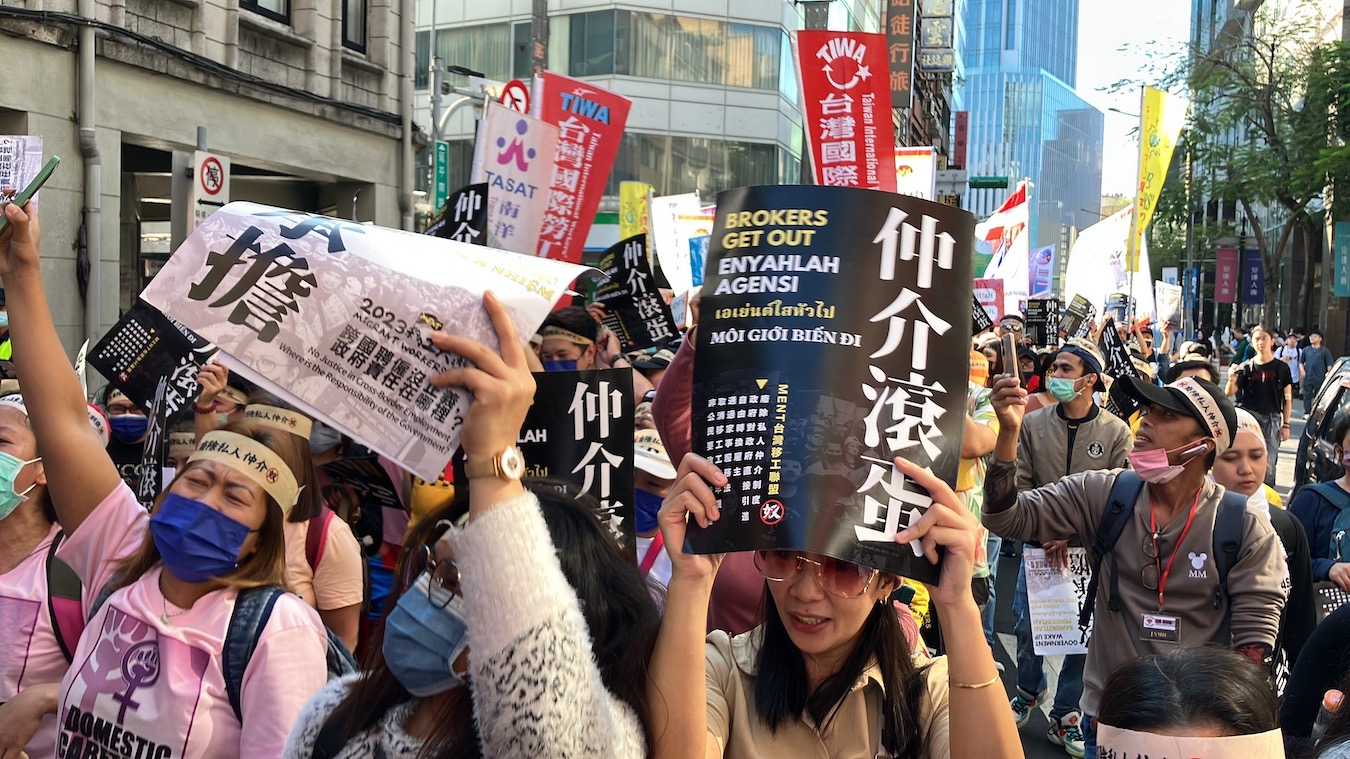 Photo credit: Girard Mariano Lopez
Photo credit: Girard Mariano Lopez
Labor activists criticized that the government has been “asleep” and lenient in its responsibilities regarding migrant workers in Taiwan–emphasizing that only by meeting such aforementioned demands would there be true “justice of transnational employment”. The Migration Empowerment Network of Taiwan (MENT), the demonstration’s main organizer, criticized the “job purchase fee” (買工費) and other extortion fees by brokers and employers, stating that more than 1,000 local intermediary firms are earning illegal profits by exploiting migrant labor. Brokers arrange for migrant workers’ employment in Taiwan, as well as their transportation to and from their home countries, but skim off exorbitant fees, leaving migrant workers in significant debt.
“The brokers have done nothing for the workers but only solicit a monthly brokerage fee, but when workers face problems, the brokers don’t do anything, when it is their very responsibility to be the “middle party” [between us and our bosses]. It is still us, the workers, who have to justify our day-offs and our needs to our bosses,” Jen* from the National Domestic Caretakers Union said.
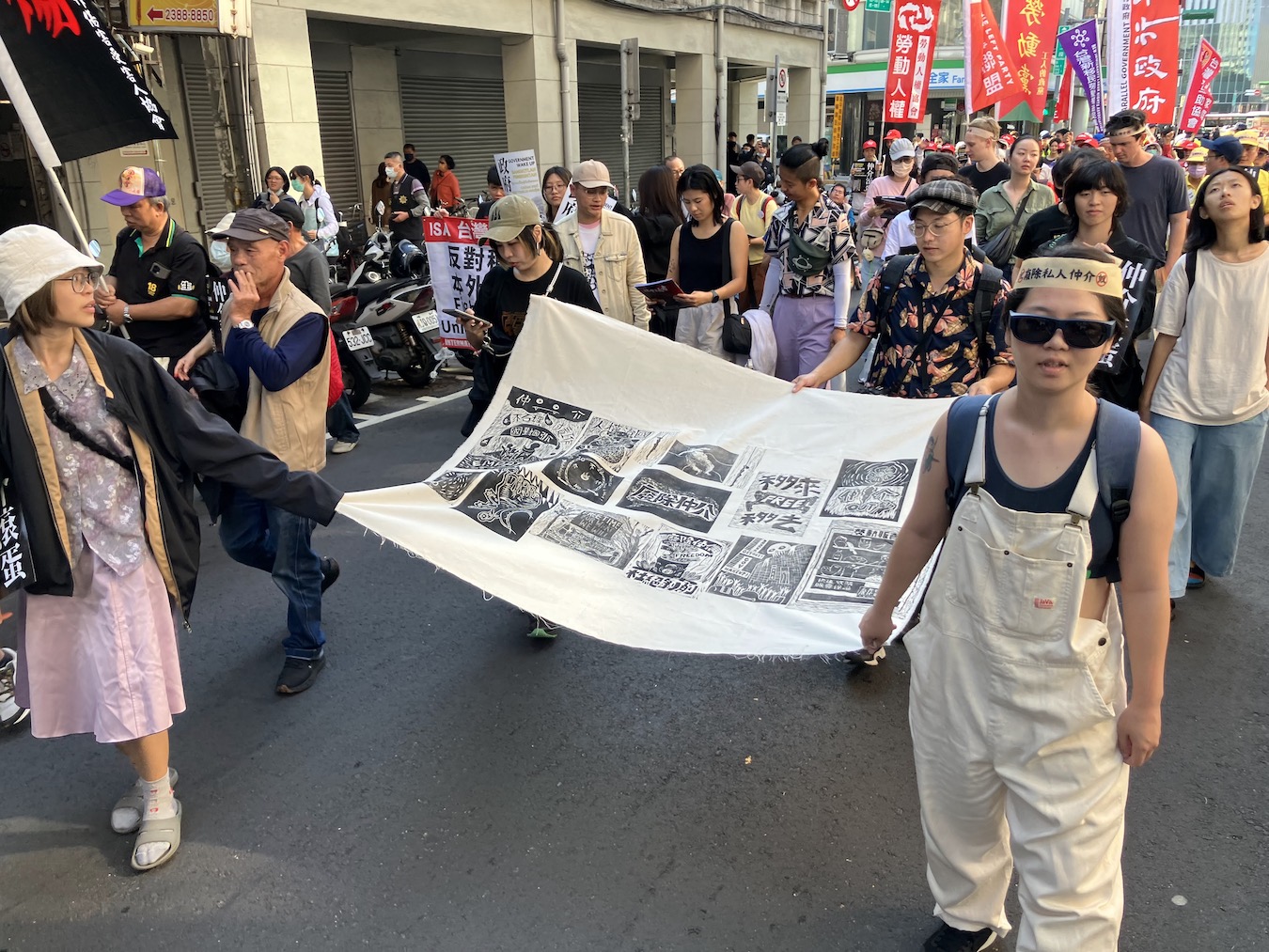 Photo credit: Girard Mariano Lopez
Photo credit: Girard Mariano Lopez
MENT is composed of eight migrant worker organizations from all over Taiwan and was joined by about 48 ally organizations representing a wide diversity of causes and advocacies, ranging from human rights, trade unions gender and LGBTQ+ equality, environment, youth, international solidarity, religious, judicial reform, education, healthcare, and various progressive left-leaning movements. Allies from other professional industries in Taiwan including artists, firefighters, flight attendants, small business owners, filmmakers, teachers, health professionals, and expats also joined in solidarity. Aside from migrant organizations representing Vietnamese, Indonesian, Filipino, and Thai nationalities, two international organizations flew in to join the march, namely from Korea (STU) and Japan (POSSE).
Demands from MENT also included calling on government agencies to provide accessible multi-language information and bilingual staff at service stations, provisions of adequate job-seeking services by the government both cross-border and domestically, and for the Direct Hiring Service Center (DHSC) of the Ministry of Labor to be reformed to actually be an efficient and viable option for employers and migrant workers as well as tackle seriously the monopolization of the migrant hiring market by private agents.
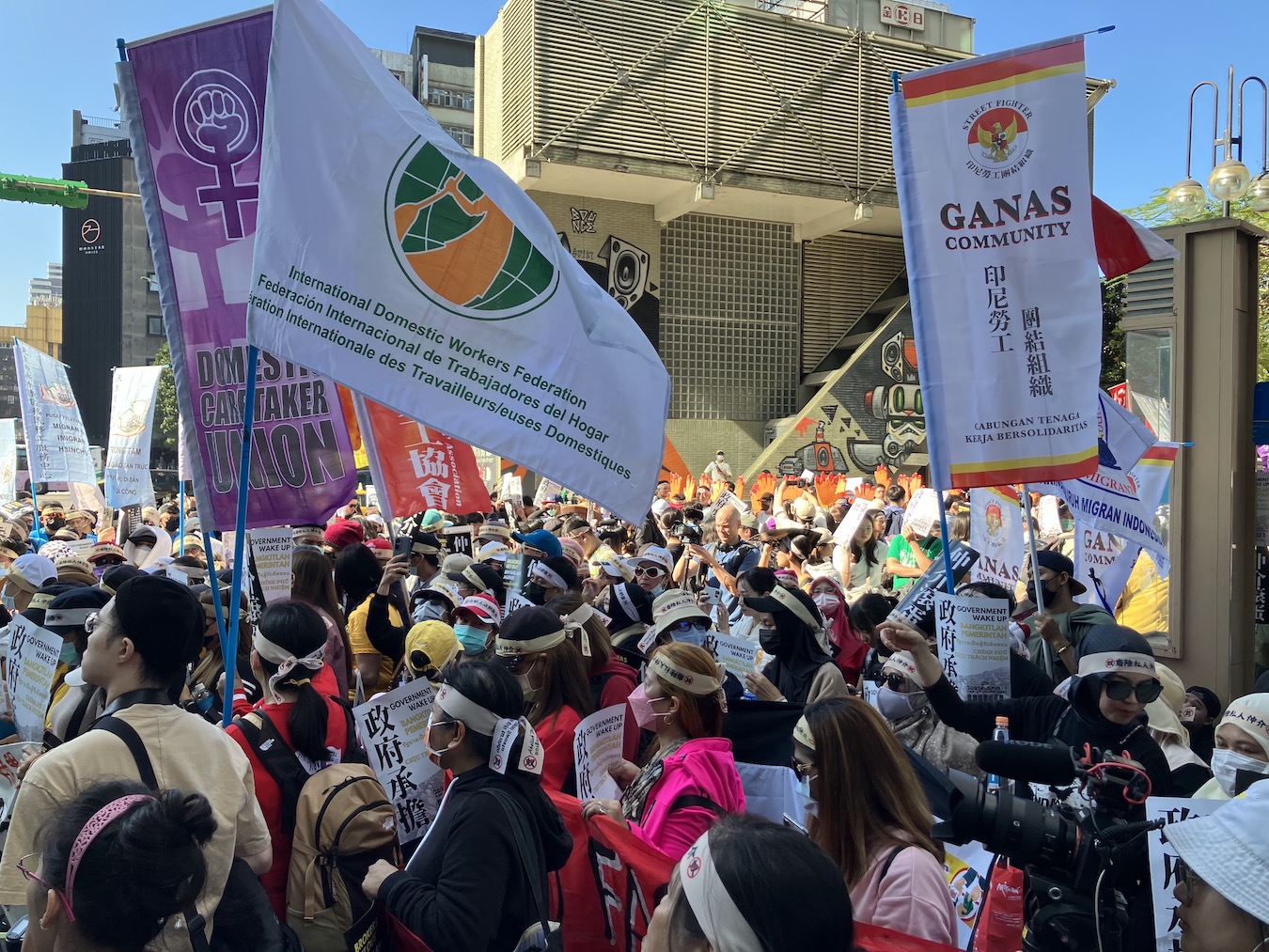 Photo credit: Girard Mariano Lopez
Photo credit: Girard Mariano Lopez
The Ministry of Labor released a statement on the same day responding to the demonstration, maintaining that there are still diverse ways for migrant workers to be hired by employers, emphasizing the DHSC, and that it has established a policy to encourage employers to hire directly and reduce the financial burden of migrant workers. Additionally, they state that cases of abuse will still be handled on a case by case basis.
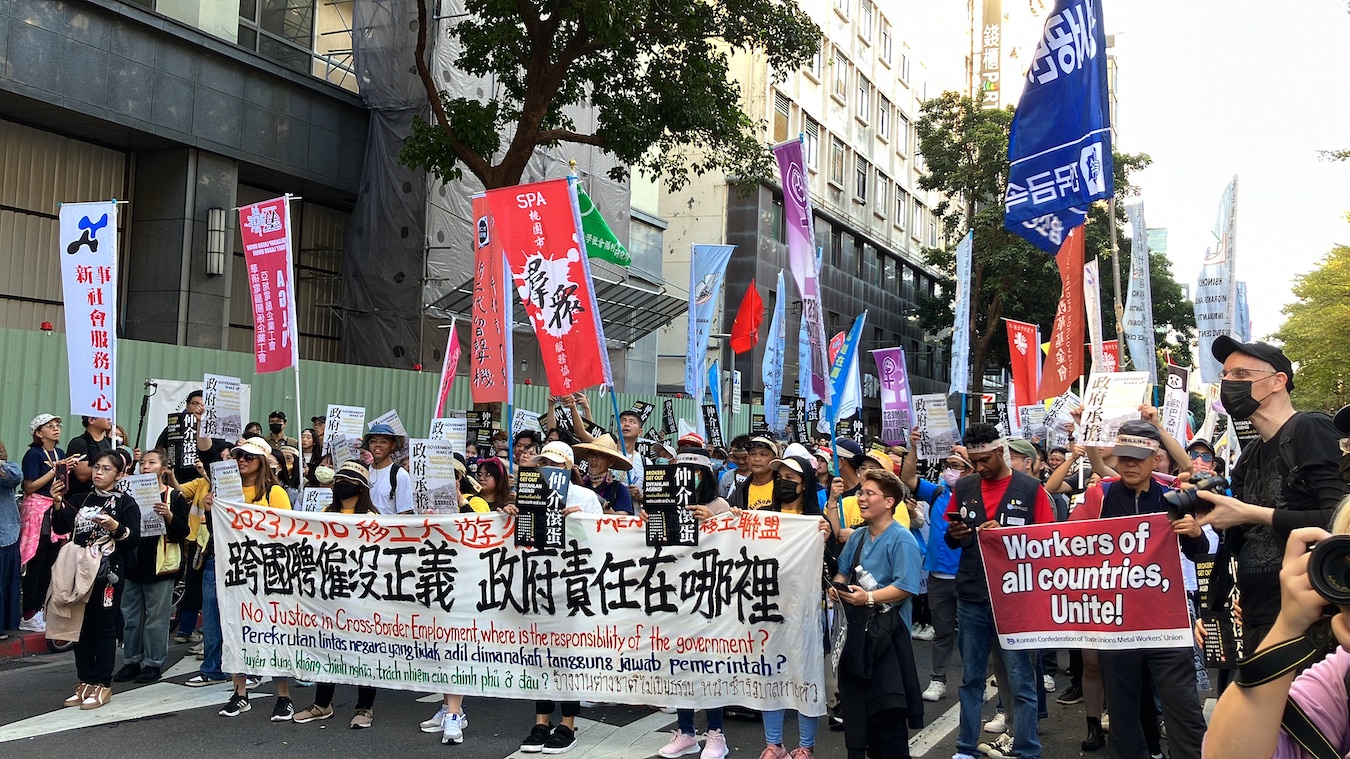 Photo credit: Girard Mariano Lopez
Photo credit: Girard Mariano Lopez
However, MENT has criticized the aforementioned statement stating that the Direct Hiring Service Center can only assist domestic direct hiring, and cannot assist any procedures from migrant workers’ home countries to Taiwan. Furthermore, according to the migrant worker coalition, the DHSC is said to have not integrated procedures required for hiring, with employers having to go through other immigration, health, and labor departments themselves–becoming a less attractive option for most employers. They criticize the DHSC for being a cumbersome “matchmaking” service that rarely guarantees employment, and still does not fully tackle the monopolization by private agencies.
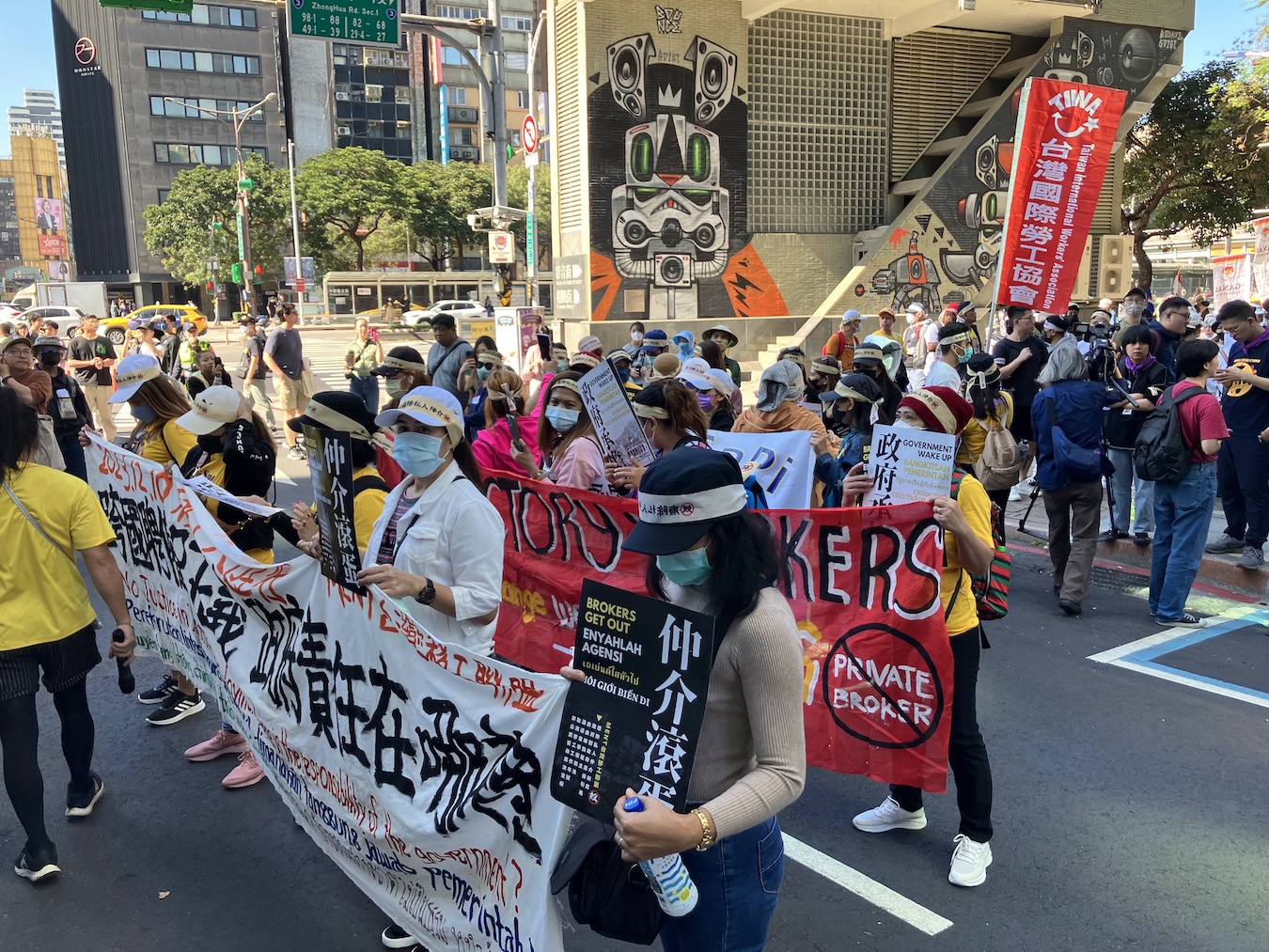 Photo credit: Girard Mariano Lopez
Photo credit: Girard Mariano Lopez
“Right now, especially our caregivers mostly, we [migrant workers] don’t have definite day-offs and their salary is just bare minimum. There are times where they don’t get a day-off at all. Sometimes, although they are caregivers, they are doing more than outside their job [description]. Meanwhile, their salary is lower, only at about 20k NTD [per month], while factory workers get about 26k NTD [per month],” a Filipino migrant worker from the Hope Workers Center said.
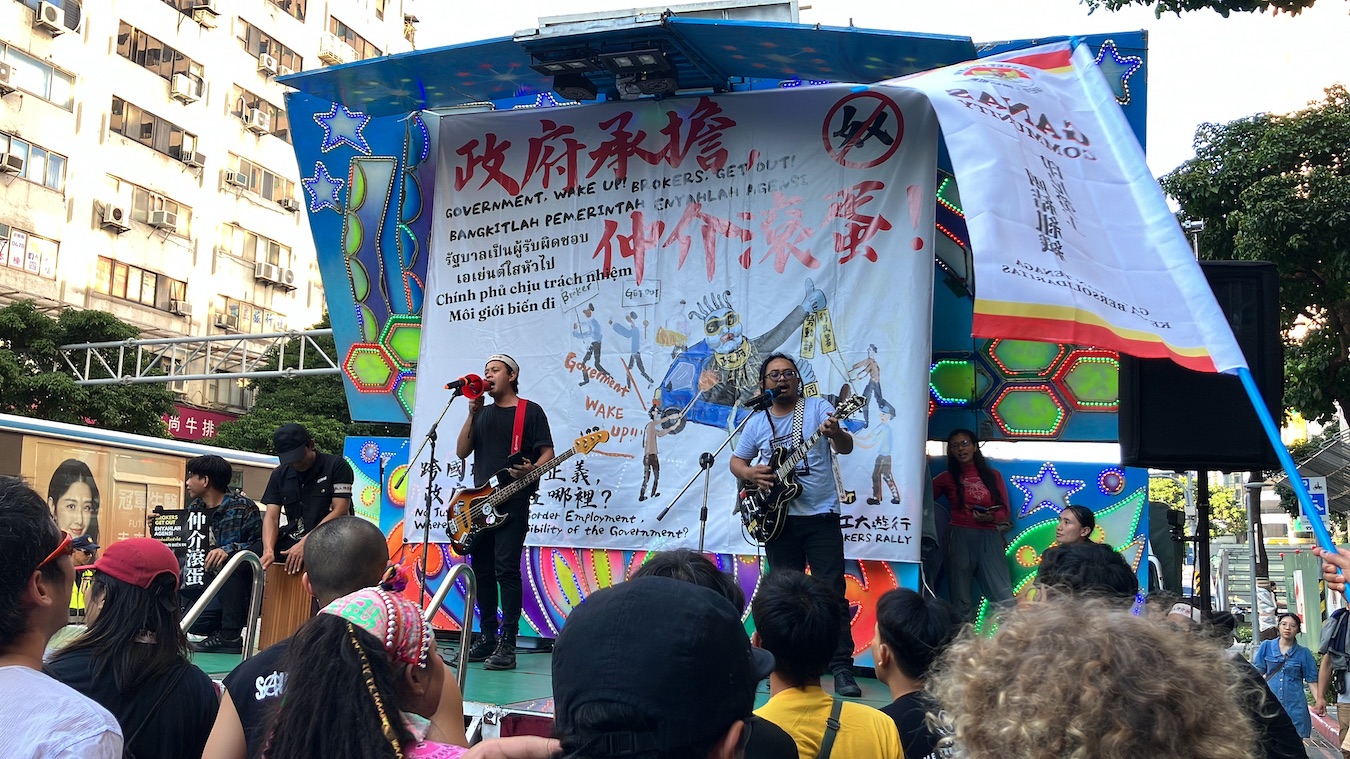 Photo credit: Girard Mariano Lopez
Photo credit: Girard Mariano Lopez
The three-hour-long protest began at Ximen’s Hankou Street with a multilingual address in Mandarin, Bahasa Indonesia, Tagalog, and Vietnamese from the Taiwan International Workers Association (TIWA) featuring a cascade of migrant workers, labor advocates, and participants that have come from all over Taiwan carrying their respective banners. A truck at the front of the caravan carried a giant paper mache mascot of a “snoozing bureaucrat”, with the names of migrant worker-related agencies written all over its suit. This signified the “sleeping government” ignoring the plight of migrant workers. Giant styrofoam hands carried by TIWA staff on poles sought to “shake and pat it awake”, a symbolic gesture of urging the Taiwanese government to respond to the advocates’ pleas.
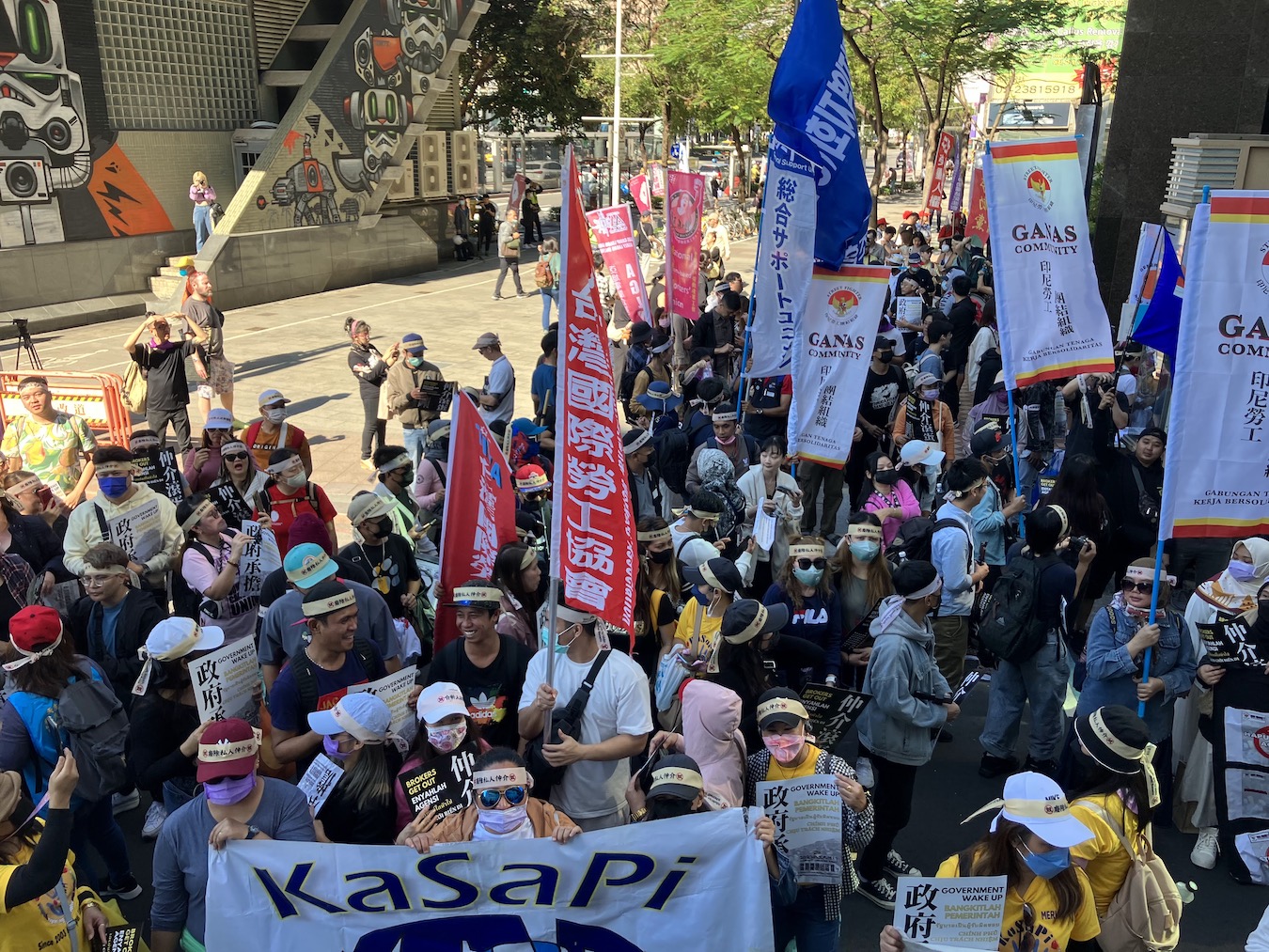 Photo credit: Girard Mariano Lopez
Photo credit: Girard Mariano Lopez
The estimated 2,000-strong procession of demonstrators marched 3.6 kilometers from Ximen to the Ministry of Labor passing through major thoroughfares such as Taipei Main Station and Zhongshan District’s downtown shopping area. Throughout the march, migrant workers and activists took turns speaking at the mobile stage, the former sharing their experiences of abuse and hardship in Taiwan while the latter called for solidarity from Taiwanese people and accountability from the government. The rally ended with speeches from MENT’s Indonesian, Filipino, and Vietnamese labor representatives, and a performance from Southern Riot, an Indonesian migrant worker punk band, with the songs “Agensi, 亂七八糟,沒有用” (Brokers are a mess, useless) and “Bella Ciao”
“We joined this rally today, not only [because] we are migrant workers, but also because it is an opportunity to use our music as a language to speak aloud about this issue,” Abu from Southern Riot said.
* Names altered for anonymity

